J.K.The Jamie Kennedy Cookbook
with Ivy Knight
Canada’s most celebrated chef reveals his food and his story.
No chef in Canada is more respected for his devotion to local, seasonal, sustainable gastronomy, and his relentless pursuit to define and celebrate Canada’s unique regional culinary character, than Jamie Kennedy.
No chef in Canada is more respected for his devotion to local, seasonal, sustainable gastronomy, and his relentless pursuit to define and celebrate Canada’s unique regional culinary character, than Jamie Kennedy. Kennedy has been at the forefront of Canada’s farm-to-table, slow food and local food movements. In this journey, he has helped to nurture and strengthen the community of like-minded producers, chefs and consumers. Moreover, he has inspired others to join him in following this traditional yet revolutionary philosophy. Throughout his illustrious and sometimes challenging career, JK has always held the same truths to be fundamental to his food. With JK: The Jamie Kennedy Cookbook, he offers everyone a taste of his extraordinary cooking. From his early days cooking at The Three Small Rooms in Toronto to Scaramouche and on to his own restaurants, the Palmerston, the ROM, JK Wine Bar and Gilead, among others, his food has evolved, but his outlook has never wavered. From French fries to Cornish hen galantines, from rhubarb jellies to pickled ramps, JK’s philosophy of simplicity and pleasure shines through. In this celebration of Canadian food, Jamie Kennedy also reveals much about his life’s work, his challenges and successes, and his engagement in a culinary and cultural revolution. Soupstock, Empty Bowls and Local Food Movement dinners, all essential events on the foodie calendar, are part of Jamie’s signature “food fight” for food security, supporting local producers and feeding the underserved.
 Jamie Kennedy, in his food and his life’s work, is a quietly radical, deeply committed activist. His passions are evident in this extraordinary cookbook. Written with Canada’s cutting edge culinary writer Ivy Knight, and featuring the stunning photography of Jo Dickins, JK: The Jamie Kennedy Cookbook will turn heads, open minds and have readers running to their kitchens to start cooking magnificent food.
Jamie Kennedy, in his food and his life’s work, is a quietly radical, deeply committed activist. His passions are evident in this extraordinary cookbook. Written with Canada’s cutting edge culinary writer Ivy Knight, and featuring the stunning photography of Jo Dickins, JK: The Jamie Kennedy Cookbook will turn heads, open minds and have readers running to their kitchens to start cooking magnificent food.
Jamie Kennedy is one of Canada’s leading and most respected chefs. He is widely recognized as one of the pioneers in the farm to table movement. His latest book J.K. focuses on seasonal food and documents his own extraordinary career. Jamie Kennedy recently spoke to Booksaboutfood.com from the busy kitchen of his Toronto restaurant Gilead.
Booksaboutfood.com (BAF): Can I ask a little bit about the writing process?
Jamie Kennedy: Well I guess the format was really more about, certainly recipes because it is a recipe book. You know, we were contracted to produce a cookbook. I think in addition to that, we wanted to tell some stories around the culture. The culture of gastronomy in Southwestern Ontario. So that’s at the forum of recipes supported by introductions that sometimes has to do with the recipes, but sometimes not specifically. (laughs) You may or may not have noticed that yet through reading.
Then actual, kind of anecdotal things or commentary. Things like the wine industry. I think what we discovered is unique from our perspective. My perspective is as a witness,. As an observer, but also a contributor. Someone who’s engaged , has been engaged in the process of the evolution of gastronomy in Southern Ontario for the last 40 years. So I guess there was just more to tell than just writing recipes.
BAF: You were one of the pioneers in farm to table movement. You were really cultivating relationships with the farmers of the area.
Jamie Kennedy: Yeah, absolutely. That’s something that I don’t think that we’ll ever go back on. We’ll just go forward, develop and foster new relationships and broader one’s. Ones that have more significance, that go beyond just the restaurant context.
I think in general we’re starting to connect more with our local growers. I think because we’re turning our focus more toward developing a new local economy in food. Other sectors of food related work will also be explored through this local lens.
I heard of a startup yesterday that is contracting local growers to produce vegetables. Then the vegetables are being processed in a plant with a new technology which allows them to be able to be shipped stable at room temperature from the plant, and used in healthcare facilities and things like that. This is of course, wonderful news for people like me in the local food movement because it tells us a bigger story than simply being in restaurants. I think having been active in this arena. It’s been inspiring to ideas like the ones I just mentioned.
BAF: How did you come into the farm to table movement back in the day when nobody else was really doing it? Did you have an’ ah ha’ moment? Or an epiphany of sorts?
Jamie Kennedy: Kind of. It might have been the formulation of Knives and Forks, which was in 1989. Of course the desire to connect with local growers came before starting that organization. I think for me at the beginning, it was about an artistic expression that involved tapping into community for inspiration. Because I found that my own childhood experiences, that local food celebrated in season, when it was ripe, was a wonderful experience and couldn’t be compared to any kind of imported experience. So I think that that formed the beginning of my shift in thinking about where, or at least questioning where food came from.
BAF: You had a culinary childhood. Was your family into food, eating at the table, and appreciating food?
Jamie Kennedy: Yes, there was a degree of that, but maybe just a bit above average to regular households across Toronto. You know, we didn’t have strong traditions in cooking … pretty basic. You know, kind of wasp based, bland U.K. fare. You know, not a lot of warm country influences. Not a lot of passion. But more about getting food on the table more than anything else, and all that’s changing now.
As we’re all getting exposed to many more cultures. The foods where once, , immigrants would be preparing their traditional foods, but not in restaurants. They’d be behind, closed doors. They’d be in their home, which is one way I’m appreciating, but it’s not a very public way. So you know, nowadays we can experience Ethiopian food, Brazilian food, and everything in between at restaurants in the city. That’s so rich and beautiful.
BAF: One of the things I think people even in Canada don’t realize, is the l bounty that Southern Ontario has to offer, that you’re able to work with.
Jamie Kennedy: Oh yes. And now you know, up until maybe 20 years ago, we were planting and harvesting in traditional crops, you know? Ones that are familiar to everyone from a white, Anglo Saxon, Protestant background. You know, your onions, your carrots, your celery, your potatoes. Now because our climate is not all that different from a lot of places in the world, in Asia in particular, we’re seeing a lot more Asian produce being grown as an alternative because farmers … having to be savvy to the new markets that are out there an available, are growing nontraditional crops.
BAF: It really makes the job of a chef who wants to cook seasonally in Ontario, a little more interesting.
Jamie Kennedy: Oh absolutely. Yeah.
BAF: One of the interesting things I liked about the book, is you divide it up into seasons, which is terrific.
Jamie Kennedy: That was sort of a natural thing for me to do. I did the chapter there about preserving. This is really a throwback to a different time in our history. It was set out according to the seasons as well.
It’s really part of our ethos at Jamie Kennedy Kitchens, to always have preserving as part of our work.
BAF: Well the other thing that is interesting, is that you have it in Seasons, but you also have a very interesting personal touch. For example, when you’re talking about the season, you mentioned that the event that you do like the Hillier Fish Fry. It takes us out of the kitchen and into the community.
Jamie Kennedy: Absolutely. Because those are important stories to be told. You know, when you talk about local food procurement, you’re talking about local provenance of food. Who is involved in that, but people in the community? Your community. Wherever it is that you are. You know?
BAF: Your adding to that tradition and building on it.
Jamie Kennedy: Yeah. For some of the old timers it was refreshing to see some of the things that they grew up with were coming back at them. After they had been away from them for some time. People they completely changed their way of approaching food in the 50’s and 60’s, which kind of led them away from what is now being heralded as new. At that time, it was just normal and they thought that moving into the convenience food era, and the fast food era, that some of that was better. You know, astronaut food. Just kind of homogeneous fast food culture that really took hold in North America in the 50’s and 60’s. Post World War II, you know?…Kind of a strange time gastronomically in our history.
BAF: You have a farm yourself in which you grow some of your own produce?
Jamie Kennedy: Yes, I do. I do have a farm that supplies the restaurant with food for, 3 or 4 months of the year.
BAF: Was it interesting becoming a producer? As opposed to just a purchaser? To actually be out there producing your own food?
Jamie Kennedy: For sure. Yeah, I mean it’s a whole other ballgame and it’s something that I share with others that work with me so that there’s this shared discovery. It’s not an easy pursuit. The farmers deserve a lot of respect and have a place in the local food community. That kind of dispels any kind of feeling that food comes to the back door. It just arrives in boxes. Something you pay for and it’s no big deal.
So for young cooks just learning how to cook, to be exposed to how to grow food is … it just engenders this whole other level of respect and passion really for the things. Because when you’ve had a part in growing something, you’re a lot more proud of it. It rubs off on you approach the cooking; the presentation of it, and your enthusiasm is contagious, all the way to the customer.
BAF: You’ve finished this book, do you have anything else on the horizon? Any other projects or anything?
Jamie Kennedy: We have the restaurant and the book is picking up a lot of time and attention right now, which is awesome. But really, we have the restaurant and… just coming to work everyday, and (laughs) doing what we do.


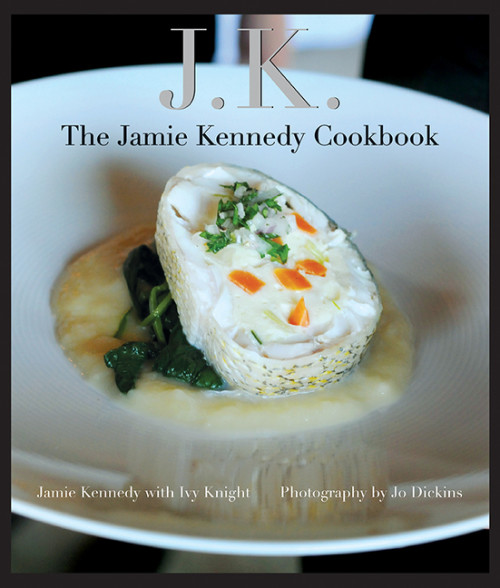


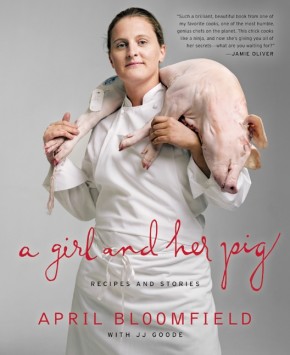
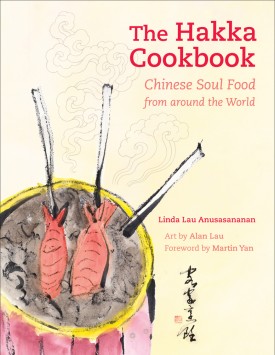
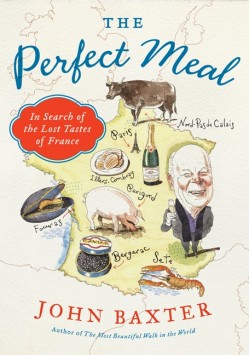
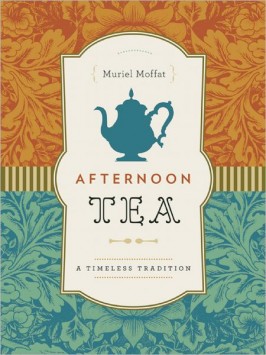
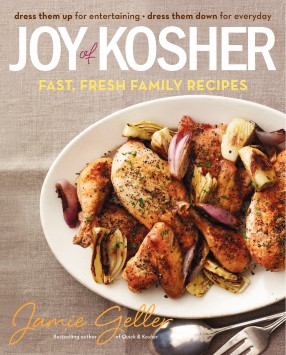
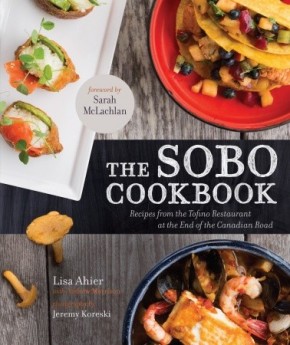
Leave a Reply